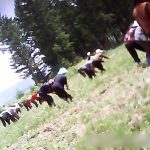In order to prevent people from leaving their jobs, the government had imposed tight punishments such as detention and short-term forced labor. The government was afraid that one of the most important governing systems in North Korea, “associational life”, would lose its importance. [*Note 3] [ Note: “associational life” will be explained in the next chapter]
However, officials of work places understand that it is necessary for the workers to join black market activities since there is no food supply or wages. They started to charge money to those who would like to earn “time” for doing other business. It was profitable and reasonable not only for the workers but the officials since the work places at that time had financial difficulties and a shortage of cash. So the workers could skip their jobs without being criticized by higher ups, but they would have to pay.

Contrary to women, men are not allowed to open stalls at markets. Therefore, they have to try to find a job which does not catch the eyes of state authorities. There are various types of jobs, it is common for a man in a city to become a “Taegori,” carrying and selling for wholesaling things such as rice and agricultural products from farm to city. Furthermore, privately-hired manual labor such as loading heavy baggage, working at construction sites, and also buying one’s own bicycle-drawn cart to carry things are all favored by male workers. Due to the end of the “governance based on the food supply” and the inability of the Party to manage the workers, a number of “freelancers” have emerged.
Related Article: <Inside N. Korea> Market survey shows “Resolution 2270”, the toughest-ever sanctions, didn’t work

Next page: 5-2People leaving their jobs and disregarding the “associational life”
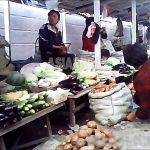
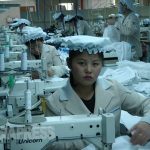
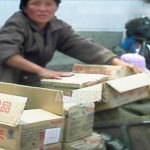
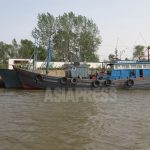
![<Inside N. Korea> The Deteriorating Plight of the People (1) Residents Impoverished by Excessive Coronavirus Quarantine Measures [ISHIMARU Jiro]](https://www.asiapress.org/rimjin-gang/wp-content/uploads/2021/07/202107-dandong-04_logo-150x150.jpeg)
